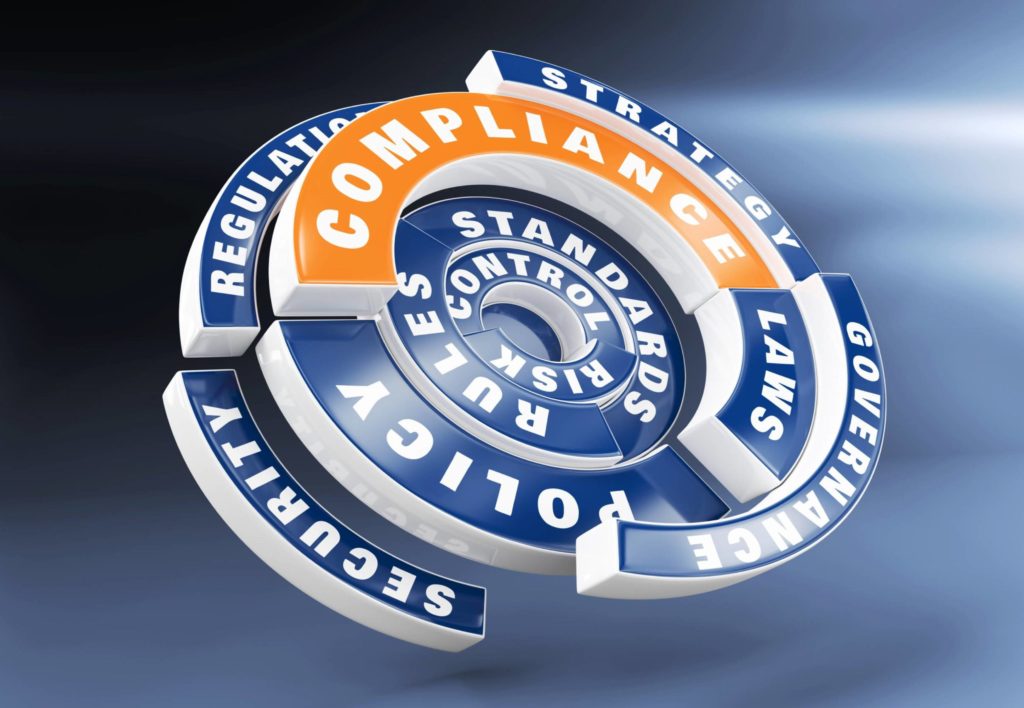CBP Enforcement of Intellectual Property Copyrights
CBP Enforcement of Intellectual Property – Copyrights
CBP Enforcement of Intellectual Property – Copyrights
CBP is authorized to detain and/or seize piratical copies of protected copyrighted works. For CBP purposes, “piratical copies” are identical or substantially similar copies of a registered copyrighted work which are produced and imported without authorization of the copyright owner. While copyright protection exists the moment a work is fixed in any tangible medium of expression, CBP focuses its enforcement of copyrights on works that have been recorded with the agency. It is important to note that CBP only records claims to copyrights which are federally registered with the U.S. Copyright Office.
In-Depth Coverage: Country of Origin
- Country of Origin of Imported Merchandise
- Customs Ruling: Country of Origin
- Country of Origin: Food Products
- Country of Origin: Chemical and Pharmaceutical Products
- Country of Origin & Country of Manufacture: CBP vs. FDA
- Country of Origin: Substantial Transformation or Country of Assembly Test
- Country of Origin and Free Trade Agreement
- Country of Origin and Section 301
Copyright law gives the author the right to prevent copying of a copyrighted work in any medium; however, the determination of copyright piracy is complex. The basic test for copyright infringement is whether an average lay observer would recognize the alleged copy as having been appropriated from the copyrighted work. Two steps are involved in the test for infringement: (1) access to the copyrighted work, and (2) substantial similarity not only of general ideas, but the expression of those ideas as well.
Access to the copyrighted work may be presumed even without direct evidence in cases where it is apparent that the importer has ample opportunity to view the copyrighted work, and the substantial similarities between the works are so striking as to preclude the possibility that they were arrived at independently. As a general matter, CBP regulations provide for the possibility of border enforcement action to enforce the Copyright Act of 1976 where the suspect work is (1) clearly piratical or (2) possibly piratical of the protected work.
In-Depth Coverage: Marketing and Advertising Compliance
- Federal Trade Commission (FTC) Advertising Rules
- Made in USA Standard
- FTC Regulation on Environmental Claims
- Adverting and Marketing on the Internet
- Label Claims for Conventional Foods and Dietary Supplements
- Dietary Supplement Advertising: What is FTC's Truth-in-Advertising Law?
- USDA Country of Origin Labeling (COOL)
- FTC Rules & Regulations on Food Advertisement
Clearly Piratical
“Clearly Piratical” is defined as overwhelming and substantial similarity between the copyrighted elements of the protected work and the suspect item so as to clearly indicate that one work was based upon the other. Imported merchandise constituting “clearly piratical” copies of a federally registered copyright recorded with CBP is subject to seizure and forfeiture. It should be noted that a person arriving in the United States may import one infringing copyrighted work as long as the infringing work is part of the traveler’s personal luggage, and is for private use and not for distribution.
Possibly Piratical
“Possibly Piratical” encompasses situations in which CBP has “reasonable suspicion” to believe that imported merchandise is piratical of copyrighted works recorded with CBP. In this instance, possibly piratical copies shall be detained and the process. If such merchandise is determined to be piratical, it may be seized and forfeited.
In-Depth Coverage: Importing Medical Device
Digital Millennium Copyright Act (DMCA)
The Digital Millennium Copyright Act (DMCA), among other things, prohibits gaining unauthorized access to a copyrighted work by circumventing a technological protection measure put in place by the copyright owner that is designed to control access to the copyrighted work. Specifically, section 1201(a)(2) of Title 17 prohibits the manufacture or importation of devices, the provision of services, or trafficking in any technology, product, service, device, component, or part thereof, that circumvents technological measure that effectively control access to a work.
To violate section 1201(a)(2), the suspect technology, service, device, or product must (1) be primarily designed or produced for the purpose of circumventing such technological measures, (2) have only limited commercially significant purpose or use other than to circumvent such measures, or (3) be marketed by the defendant or another acting in concert with that person's knowledge for use in circumventing a technological measure.
For more detailed information, please refer to the Informed Compliance Publication ‘’CBP Enforcement of Intellectual Property Rights’’ and CBP website.
Read more about CBP Enforcement of Intellectual Property
Guidance on customs & logistics solution for traditional and e-commerce importers and exporters
Customs Clearance
All goods imported into the U.S. are required to be declared to CBP. Our customs broker will help you stay in compliance with customs laws and regulations and clear your goods quickly and efficiently with our electronic Automated Commercial Environment (ACE) and Automated Broker Interface (ABI) Single Window System.
Warehousing & Distribution
Our warehouse facility offers great potential for serving as a regional hub with over 145,000 SF storage capacity close to Los Angeles Airport & Los Angeles/Long Beach Sea port. With our extensive experience in freight services, your import/export cargo will be handled quickly and effectively.
Freight Forwarding
Looking for a freight forwarding partner? To move your cargo from its current location through customs to its final destination we will partner with you to find the best way for your business. Whatever your transportation, logistics or customs clearance needs, we will do our best to customize a solution for your needs.
E-Commerce
The Internet has made it easy to find and purchase items from almost anywhere in the world. Our e-commerce experts will help you find the right solution for your international transportation, customs clearance, and delivery to your final destination. We also provide value-added repackaging, warehousing and distribution services.
Section 321 Entry
Section 321 entry allows importing free of duty and tax for shipments imported by one person on one day having a fair retail value in the country of shipment not more than $800. We provide our resident and non-resident clients with dedicated ACE eManifest solutions for Section 321 entry of all modes of transportation.
Non-resident Importer Program
If you want to sell your products in U.S. marketplaces, but you are a business owner located outside of the U.S., and do not have an entity or physical presence in the U.S., you need to be established as a Foreign Importer of Record before your goods can be imported into the U.S. We can help you.
In-Depth Coverage: Customs Valuation
In-Depth Coverage: Importing Food Products
- What is FDA Food Safety Modernization Act (FSMA)?
- Prior Notice of Imported Foods
- FDA Food Facility Registration
- Risk-Based Preventive Controls for Human Food
- Risk-Based Preventive Control for Animal Food
- Protect Food against Intentional Adulteration
- What is Foreign Supplier Verification Program (FSVP)?
- What is FSMA Produce Safety Rule?
In-Depth Coverage: USDA-Regulated Products
- Importing USDA-Regulated Food Products
- Import Regulation by USDA Agricultural Marketing Service (AMS)
- Food Products – FDA or USDA Regulated
- Country of Origin Labeling
- Importing Animals, Animal Products, and Biologics into the US
- Importing Meat, Poultry, and Egg Products into the US
- Labeling and Marking of Imported Meat, Poultry, and Egg Products
- USDA National Organic Program (NOP)
- Agricultural Safeguards and USDA Licensing
Quick Link To U.S. Customs & Import Requirements
FDA-Regulated Products and Import Requirements
- What is Food Safety Modernization Act (FSMA)?
- Prior Notice of Imported Foods
- Food Facility Registration
- Risk-Based Preventive Controls for Human Food
- Risk-Based Preventive Control for Animal Food
- Standards for the Growing, Harvesting, Packing, and Holding of Produce for Human Consumption
- What is Foreign Supplier Verification Program (FSVP)?
- Protect Food against Intentional Adulteration
- FDA Regulated Product in Foreign Trade Zone (FTZ)
- Entry Review Process for FDA Regulated Products
- Country of Origin VS Country of Manufacture
- Foods Regulated by FDA or USDA: What is the Difference?
- Label and Labeling Claims for Conventional Food and Dietary Supplements
- What is USDA Country of Origin Labeling (COOL)?
- Import for Export of FDA Regulated Products
- FDA Regulated Products in Personal Baggage or Sending by Mail or Courier
- International Mail Facility (IMF) and FDA Regulation
- Importing Biological Product Regulated by CBER
- Importing Cosmetics and Voluntary Cosmetic Registration Program (VCRP)
- Importing Drugs into the U.S.
- Importing OTC Drugs into the U.S.
- Importing Veterinary Drugs into the U.S.
- Importing Tobacco Products into the U.S.
- Importing Medical Devices into the U.S
- Importing Food Products into he U.S.
- Importing Radiation-Emitting Products into the U.S.
Customs Clearance and Import Requirements
- Entry of Imported Merchandise
- What is Section 321 Entry?
- What is Automated Commercial Environment (ACE)
- What is an Automated Broker Interface (ABI)?
- Who is Ultimate Consignee?
- What is Non-Resident Importer Program?
- Country of Origin of Imported Merchandise
- What is the Country of Assembly?
- What is the FDA's Country of Manufacture?
- Marking of Country of Origin on U.S. Imports
- What is Customs Bond?
- Reconciliation Prototype and Bond Rider
- Who Needs a Customs Broker?
- What is Customs Ruling Program?
- Classification of Imported Goods
- How is imported merchandise appraised?
- What are Import Quotas?
- What are Trade Remedy Duties?
- Antidumping Duty (AD) and Countervailing Duty (CVD)
- What is Foreign Trade Zone (FTZ)?
- What is Importer Security Filing (ISF)?
- What is Temporary Importation under Bond (TIB)
- What is In-Bond Process?




















